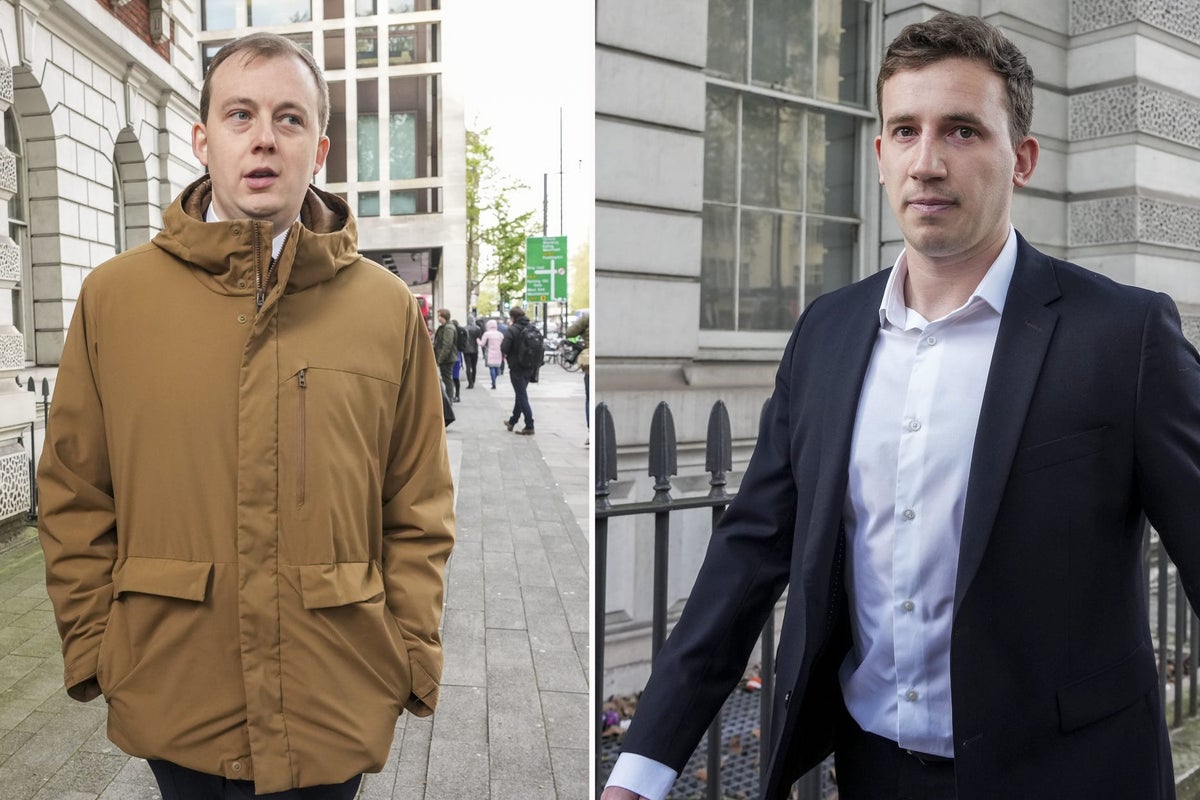
A Chinese spying trial collapsed after the Government refused to brand Beijing a threat to national security, the director of public prosecutions (DPP) has said.
Stephen Parkinson said the Crown Prosecution Service had tried “over many months” to get the evidence it needed to carry out the prosecution, but it had not been forthcoming from the Labour Government.
The case against Christopher Cash, a former parliamentary researcher, and Christopher Berry was dropped on September 15, sparking criticism from Downing Street and MPs from both sides of the political aisle.
The decision reportedly came after senior Whitehall officials met to discuss the trial, including national security adviser Jonathan Powell and the Foreign Office’s top civil servant Sir Oliver Robbins, according to the Sunday Times.
To prove the case under the Official Secrets Act 1911, prosecutors would have had to show the defendants were acting for an “enemy”.
Prime Minister Sir Keir Starmer defended the Government on Tuesday evening, insisting the decision to brand China a threat would have to have been taken under the previous Conservative administration.
In a letter to the chairmen of the home affairs and justice committees, Mr Parkinson said: “It was considered that further evidence should be obtained.
“Efforts to obtain that evidence were made over many months, but notwithstanding the fact that further witness statements were provided, none of these stated that at the time of the offence China represented a threat to national security, and by late August 2025 it was realised that this evidence would not be forthcoming.
“When this became apparent, the case could not proceed.”
Mr Parkinson added that a High Court judgment in a separate Russian spying case last year ruled that an “enemy” under the 1911 Act must be a country which represents a threat to the national security of the UK “at the time of the offence”.
Speaking as he travelled with a trade delegation to Mumbai, the Prime Minister defended his Government against accusations that its approach led the case to collapse.
Sir Keir insisted that as the alleged offences took place under the previous Conservative government, that administration’s approach to China had to be considered in courtroom evidence.
The Tories at the time – including current leader, Kemi Badenoch – declined to describe China as a threat, and the Prime Minister told reporters: “Therefore statements were drawn up at the time according to the then-government policy, and they haven’t been changed in relation to it, that was the position then.
“I might just add, nor could the position change, because it was the designation at the time that matters. You can’t prosecute someone two years later in relation to a designation that wasn’t in place at the time.
“So this has to be the position of the last government, I’m not saying that defensively, because that was the last government.”
Asked if he laid the blame for the charges being withdrawn at the door of the CPS, Sir Keir suggested he was “not expressing a view one way or the other”, adding: “Nor would I on what the DPP or CPS say, because it’s wise not to.”
Sir Keir also suggested other recent espionage-related case law had impacted on the CPS’s ability to prosecute.
Since the alleged spying offences took place, the National Security Act has superseded elements of the Official Secrets Act which require proof that someone is working for a state classed as an “enemy”.
The Prime Minister’s political opponents have suggested he has questions to answer about how the case ended.
Mr Cash and Mr Berry have denied all wrongdoing.
Speaking at the Conservative Party conference on Monday, shadow home secretary Chris Philp said: “I can’t imagine Jonathan Powell, who’s one of Keir Starmer’s closest and most senior advisers, would have done that without discussing it with the Prime Minister first, so Keir Starmer now has some very serious questions to personally answer.”
Sir Keir told reporters he had been briefed on the process of the case.
